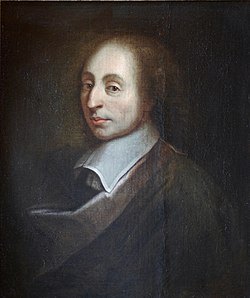Blaise Pascal Quote
The majority is the best way because it is visible and has strength to make itself obeyed. Yet it is the opinion of the least able.
Blaise Pascal
The majority is the best way because it is visible and has strength to make itself obeyed. Yet it is the opinion of the least able.
Tags:
government, rule
Related Quotes
Let my silence grow with noise as pregnant mothers grow with life. Let my silence permeate these walls as sunlight permeates a home. Let the silence rise from unwatered graves and craters left by bomb...
Kamand Kojouri
Tags:
abuse, abused, activism, activism poems, activist, amnesty, bellies, bombs, broken hearts, coming together
The downfall of the attempts of governments and leaders to unite mankind is found in this- in the wrong message that we should see everyone as the same. This is the root of the failure of harmony. Bec...
C. JoyBell C.
Tags:
color, culture, difference, differences, equality, government, harmony, human, humanism, humanity
The global population of Earth are involved in the following corporate government experiments: The long term effects of - 1. Nuclear bomb fallout radiation. 2. Man-made wireless radio frequency (RF) r...
Steven Magee
Tags:
abnormally, adaptation, aircraft, airplanes, atmosphere, atom, bodies, bomb, chemical, chemtrails
About Blaise Pascal
Blaise Pascal (19 June 1623 – 19 August 1662) was a French mathematician, physicist, inventor, philosopher, and Catholic writer.
Pascal was a child prodigy who was educated by his father, a tax collector in Rouen. His earliest mathematical work was on projective geometry; he wrote a significant treatise on the subject of conic sections at the age of 16. He later corresponded with Pierre de Fermat on probability theory, strongly influencing the development of modern economics and social science. In 1642, he started some pioneering work on calculating machines (called Pascal's calculators and later Pascalines), establishing him as one of the first two inventors of the mechanical calculator.
Like his contemporary René Descartes, Pascal was also a pioneer in the natural and applied sciences. Pascal wrote in defense of the scientific method and produced several controversial results. He made important contributions to the study of fluids, and clarified the concepts of pressure and vacuum by generalising the work of Evangelista Torricelli. Following Torricelli and Galileo Galilei, in 1647 he rebutted the likes of Aristotle and Descartes who insisted that nature abhors a vacuum.
He is also credited as the inventor of modern public transportation, having established the carrosses à cinq sols, the first modern public transport service, shortly before his death in 1662.
In 1646, he and his sister Jacqueline identified with the religious movement within Catholicism known by its detractors as Jansenism. Following a religious experience in late 1654, he began writing influential works on philosophy and theology. His two most famous works date from this period: the Lettres provinciales and the Pensées, the former set in the conflict between Jansenists and Jesuits. The latter contains Pascal's wager, known in the original as the Discourse on the Machine, a fideistic probabilistic argument for why one should believe in God. In that year, he also wrote an important treatise on the arithmetical triangle. Between 1658 and 1659, he wrote on the cycloid and its use in calculating the volume of solids. Following several years of illness, Pascal died in Paris at the age of 39.
Pascal was a child prodigy who was educated by his father, a tax collector in Rouen. His earliest mathematical work was on projective geometry; he wrote a significant treatise on the subject of conic sections at the age of 16. He later corresponded with Pierre de Fermat on probability theory, strongly influencing the development of modern economics and social science. In 1642, he started some pioneering work on calculating machines (called Pascal's calculators and later Pascalines), establishing him as one of the first two inventors of the mechanical calculator.
Like his contemporary René Descartes, Pascal was also a pioneer in the natural and applied sciences. Pascal wrote in defense of the scientific method and produced several controversial results. He made important contributions to the study of fluids, and clarified the concepts of pressure and vacuum by generalising the work of Evangelista Torricelli. Following Torricelli and Galileo Galilei, in 1647 he rebutted the likes of Aristotle and Descartes who insisted that nature abhors a vacuum.
He is also credited as the inventor of modern public transportation, having established the carrosses à cinq sols, the first modern public transport service, shortly before his death in 1662.
In 1646, he and his sister Jacqueline identified with the religious movement within Catholicism known by its detractors as Jansenism. Following a religious experience in late 1654, he began writing influential works on philosophy and theology. His two most famous works date from this period: the Lettres provinciales and the Pensées, the former set in the conflict between Jansenists and Jesuits. The latter contains Pascal's wager, known in the original as the Discourse on the Machine, a fideistic probabilistic argument for why one should believe in God. In that year, he also wrote an important treatise on the arithmetical triangle. Between 1658 and 1659, he wrote on the cycloid and its use in calculating the volume of solids. Following several years of illness, Pascal died in Paris at the age of 39.
